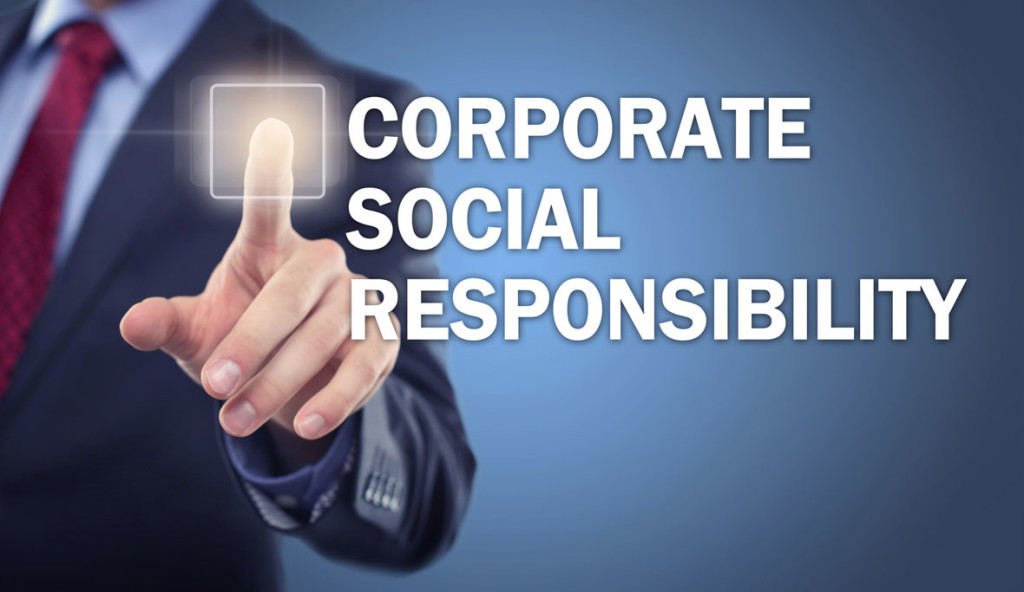Macy’s recently announced a partnership with Source America to provide jobs for person’s with disabilities.
Source America sets an example of corporate social responsibility (CSR), by hiring thousands of people with disabilities in partnership with Macy’s. The arrangement provides a three-year contract for employees of warehouse fulfillment centers, along with retail locations for both Bloomingdale’s and Macy’s.
In a recent interview, a spokesperson for Macy’s said that the retailer’s commitment does not end with creating jobs, but setting an example that other employers can follow.
Macy’s isn’t the only organization using a CSR model. In fact, many companies now promote some form of social responsibility. Some have even made it the core of their business operations. For instance, Starbucks has created its own C.A.F.E. Practice guidelines, which were designed to ensure that the company sources sustainably processed coffee production.
What Is Corporate Social Responsibility
Both instances above represent terrific examples of what it means to be a socially responsible corporate citizen, but what is corporate social responsibility (CSR)? CSR refers to business decisions and practices that benefit society, as a whole. Social responsibility works like a self-regulatory policy that helps organizations ensure and monitor their impact on the community around them.
A company that complies with the intent of the law, national norms, and ethical standards is understood to be socially responsible. However, corporations aren’t the only organizations that can benefit from embracing a CSR model.
Indeed, corporate social responsibility can also help third sector groups, such as non-profit organizations; this is especially true for non-profits that work in close collaboration with the public sector.
Why Social Responsibility Matters for Nonprofits
Although non-profits and for-profit corporations all seek to fulfill a need within their respective communities, their methods are vastly different. For example, while companies that exist to make a profit return excess profits to the owners or shareholders, this is not so for nongovernmental organizations (NGOs). Instead of distributing profits, non-governmental organizations reinvest any profit back to the organization.
Furthermore, although some nonprofit organizations offer products and services in exchange for a financial fee, there is almost always some level of altruism at play, as well. For instance, in addition to selling products and services, many nongovernmental organizations also accept donations. Some even proactively go out and search for grant funding.
Hence, non-profit organizations rely heavily on public trust. Should they lose it due to lack of transparency, malfeasance, or ineptitude, it’s hard to regain. Furthermore, organizations who show high levels of internal accountability and competence, while being good stewards in the community tend to find their coffers overflowing with donations and free publicity.
How Nonprofits can become More Socially Responsible Through Corporate Partnerships
While it’s easy for nonprofit agencies to find causes worthy of championing, the hard part is doing it on a scale that’s large enough to make a noticeable impact in the community. The good news is that nonprofit groups who partner with for-profit companies are often able to affect meaningful change. Here are several ways nonprofits can partner with for-profit businesses.
Funding via Matching Gift Programs – Corporations that accept match gift programs essentially double the amount of donations that their employees make to eligible nonprofits. Matching gifts can be complicated since every company has a different set of requirements, guidelines, and deadlines that must be met before donating an employee’s contribution to a nonprofit.
More Volunteer Participation – Corporations that provide volunteer grants are providing needed assistance to eligible nonprofit organizations. Employees of these businesses are seen donating and volunteering their time to important causes in the community. The nonprofits are receiving free volunteer work and time that is essential to the success of many non-profits.
Varied Sources of Revenues – Nonprofits cannot solely depend on the donations provided by individuals for support. Individual contributions make roughly three-fourths of most organization’s total monetary contributions. Hence, nonprofits should not discount businesses and corporations as a major source of revenue.
So, while there are many ways your nonprofit can partner with for-profit ventures, the bottom line is that corporate social responsibility partnerships can help you make up any shortfalls that individual donors or volunteers may have been unable to cover.
Why Corporate Responsibility Partnerships Are Important to Businesses
If you think that nonprofit organizations are the only party that gains from CSR partnerships, not so fast. The firms that partner with NGOs benefit, as well. So, before you approach a corporation with a collaborative opportunity in hand, it helps to know what the company you’re approaching might want in return. Here are a few items corporations consider when evaluating partnership opportunities.
Consumers are socially conscious – More than 88% of consumers actively seek out companies that support charitable causes. Hence, many businesses take a proactive stance with CSR in hopes of attracting customers.
Competitive advantage – Every company is seeking ways to bolster their unique position in the market. However, the stronger the competition, the harder it is to stand out. As such, businesses that show how they are more socially responsible than their competitors tend not to have problems standing out.
Boosts employee morale – Surveys show that 32% of employees consider leaving their job if the employer did not give to charity. So, as you can see CSR practices have a significant impact on employee morale.
Armed with the insights above you’re in a much better position to propose CSR solutions to corporate businesses. So, whether you’re looking for volunteers, donations, or discounted products, for-profit partnerships can help.
However, before proposing some form of collaboration with for-profit businesses that you’d like to work with be sure that you can clearly articulate what’s in it for them.
This article was taken from here.

